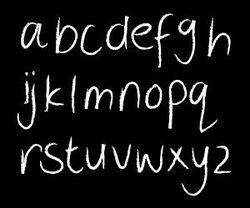Curriculum

The Joplin Elementary Gifted Center uses a pull-out model in which students attend the Center one day per week for academic instruction. The elementary curriculum is based on the constructivist educational theory. Higher level thinking skills and technology are integrated and delivered through multi-disciplinary thematic units and inquiry-based activities. The gifted center models their curriculum after the Performance Standards for the State of Missouri. "The standards serve as a blueprint from which local school districts may write challenging curriculum to help all students achieve their maximum potential."
Strand I
Research(Acquiring Knowledge)
1. Use a variety of tools to conduct research to answer questions and evaluate information and ideas
2. Discover and evaluate patterns and relationships in information, ideas, and structures
3. Organize data, information, and ideas into useful forms including charts, graphs, outline for analysis or presentation
Strand II
Communication(Sharing Knowledge)
1. Plan and make written, oral, and visual presentations for a variety of purposes and audiences
2. Exchange information, questions, and ideas while recognizing the perspectives of others
3. Present perceptions and ideas regarding works of the arts, humanities, and sciences
Strand III
Problem Solving(Applying Knowledge)
1. Identify and examine problems and proposed solutions from multiple perspectives
2. Reason inductively from a set of specific facts and deductively from general premises
3. Evaluate the processes used in recognizing and solving problems
Strand IV
Affective(Emotional Knowledge)
1. Identify tasks that require a coordinated effort and work with others to complete those tasks
2. Explain reasoning and identify information used to support decisions
3. Identify and apply practices that preserve and enhance the emotional health of self and others
Strand I
Research(Acquiring Knowledge)
1. Use a variety of tools to conduct research to answer questions and evaluate information and ideas
2. Discover and evaluate patterns and relationships in information, ideas, and structures
3. Organize data, information, and ideas into useful forms including charts, graphs, outline for analysis or presentation
Strand II
Communication(Sharing Knowledge)
1. Plan and make written, oral, and visual presentations for a variety of purposes and audiences
2. Exchange information, questions, and ideas while recognizing the perspectives of others
3. Present perceptions and ideas regarding works of the arts, humanities, and sciences
Strand III
Problem Solving(Applying Knowledge)
1. Identify and examine problems and proposed solutions from multiple perspectives
2. Reason inductively from a set of specific facts and deductively from general premises
3. Evaluate the processes used in recognizing and solving problems
Strand IV
Affective(Emotional Knowledge)
1. Identify tasks that require a coordinated effort and work with others to complete those tasks
2. Explain reasoning and identify information used to support decisions
3. Identify and apply practices that preserve and enhance the emotional health of self and others
